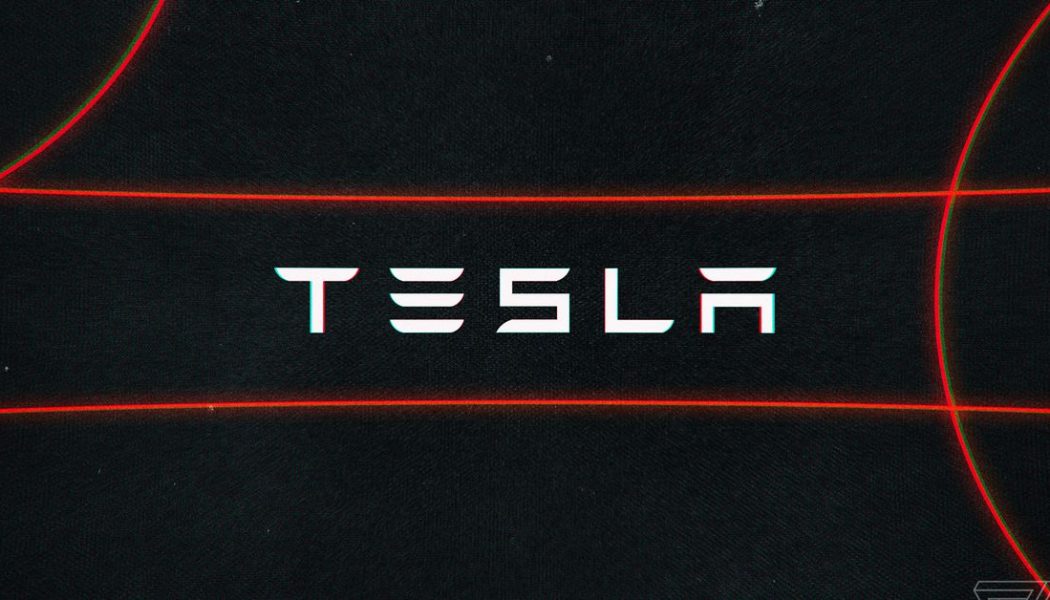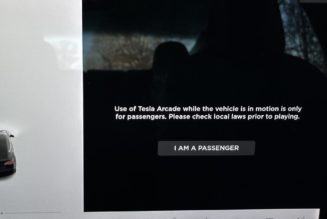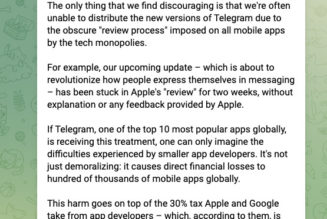
Tesla’s stock price hit $1,000 for the first time on Wednesday, meaning the Silicon Valley company has now passed Toyota in market capitalization and is the most valuable automaker in the world by that metric.
This comes as at least six Tesla employees have tested positive for COVID-19 in California since CEO Elon Musk reopened the company’s facilities there last month — initially in violation of stay-home orders, and then with the blessing of local officials — according to new reports from The Washington Post and Electrek. An employee at Tesla’s Buffalo, New York solar panel factory also tested positive for COVID-19 after that facility reopened, as The Verge previously reported.
Tesla employed 48,000 people worldwide at the end of 2019. It’s unclear how many have tested positive for COVID-19 since the outbreak began. The company has not shared that information, and — like other automakers — is not actively testing its employees in the US as part of the return-to-work guidelines it published last month. Instead, Tesla is putting the onus on its workers to get tested if they feel symptomatic or believe they’ve come in contact with someone who has COVID-19. At least four workers at the company’s US facilities (including one Panasonic worker) tested positive before they shut down in March, according to previous reports.
Other automakers are dealing with new COVID-19 cases, too. And as the country appears to be facing an earlier-than-expected “second wave” of the pandemic thanks to relaxed restrictions, it’s a problem that is likely only going to get worse for all of them. In the case of those other automakers, the employees are represented by a union that can at least exert some pressure on the companies to disclose a rash of positive cases. Tesla’s workforce is not unionized, and so it’s really just up to the company or local officials in Alameda County to inform the public if there’s any spread that can be connected to the workforce. But the relationship between Tesla and the county is frayed.
Musk and Tesla fought to keep the company’s California factory open in March, arguing to local officials that the company was considered part of the “national critical infrastructure” as defined by the Department of Homeland Security. The company had just started deliveries of its fifth vehicle, the Model Y SUV, which is expected to become as popular as or more popular than the Model 3 sedan. But Tesla ultimately acquiesced and shut down the Fremont, California factory one week after the local stay-home order went into place.
At the same time, Tesla’s stock price was at its lowest point for the year so far. Tesla’s stock had hit an all-time high early in the year when it crossed $900 in February, buoyed by record sales in 2019 and optimism about the early results of its new vehicle factory in China. But the price fell all the way to the mid-$300 mark in March, roughly tracking with the overall stock market’s reaction to the novel coronavirus’s rapid spread throughout the United States.
Musk spent the next month and a half spreading misinformation about the virus, downplaying the threat it presents, and called the stay-home orders unconstitutional and “fascist.” The company furloughed thousands of workers during the shutdowns at Tesla’s three US factories. And then, as the first few cities and states around the country started to loosen restrictions in early May, Musk had Tesla sue Alameda County over its stay-home order and start making cars again in violation of that order. The company brought back many — but not all — of those workers, and the lawsuit was ultimately dropped after local officials approved of Tesla’s reopening.
The company’s stock price has rallied in a big way since that March low point. In a sense, that’s no surprise, since the overall stock market is booming again to the disbelief of many. But Tesla’s own recent boom — across this last week, especially — may have more to do with a big uptick in new car sales in China, Musk’s teasing that the Tesla Semi will finally go into production, and hype about the company’s upcoming battery breakthrough. It’s also not out of the question that the stock price has been bolstered by the milestone that Musk’s other company, SpaceX, just accomplished when it sent humans into space for the first time. Tesla also benefits by being more than just an automaker — a paradigm shift to which other automakers have struggled to adapt.
One of Musk’s greatest accomplishments is that he’s able to get Tesla investors to focus their attention away from any perceived short-term turbulence and onto his long-term goals for the company. This means that news like Tesla losing a key executive who made the factory in China possible, or contradictions like how the company said just a few weeks ago that the Semi was delayed to 2021, are less likely to become millstones weighing on the stock. It also means that Tesla’s stock price run probably won’t be stopped by the novel coronavirus creeping further into its workforce.










